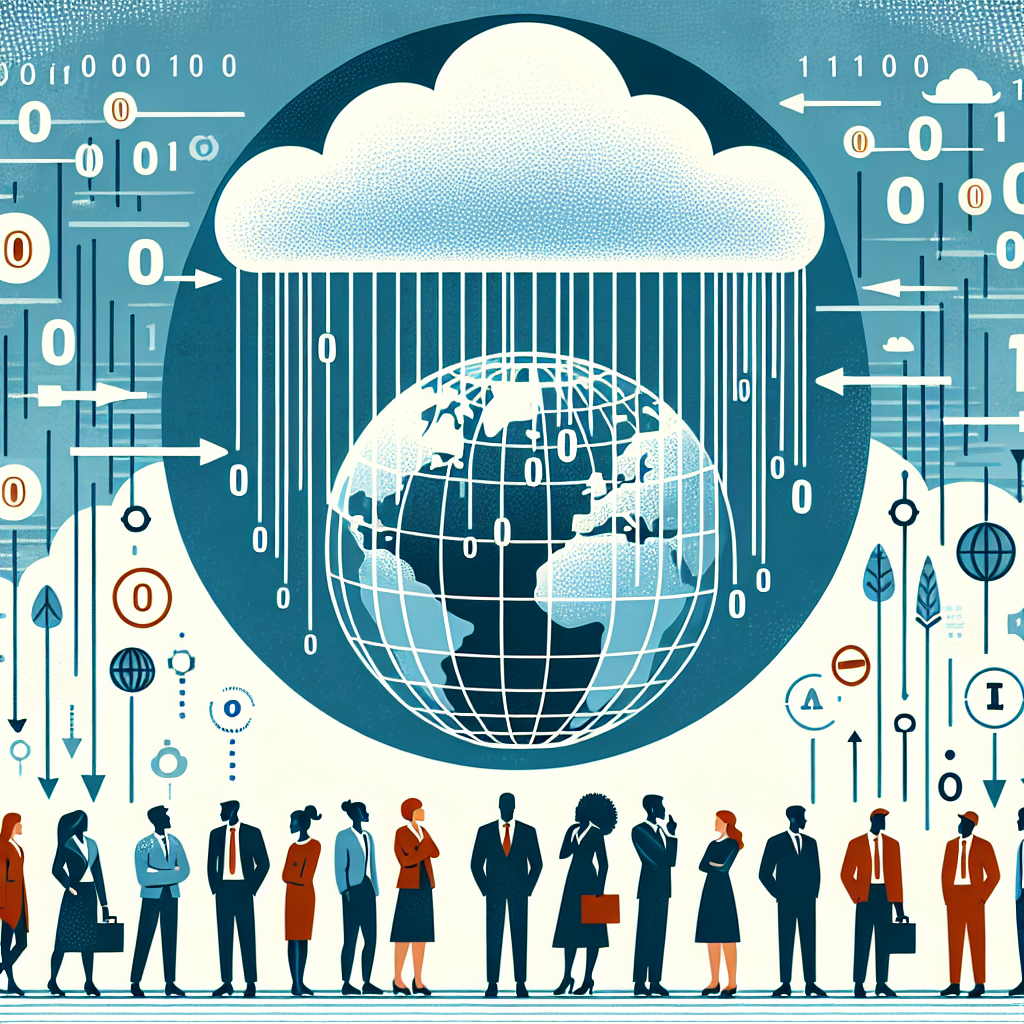Artificial Intelligence (AI) has become an integral part of many industries, transforming the way businesses operate and creating new opportunities for growth and efficiency. One of the key trends in AI adoption is outsourcing, where companies rely on external vendors to provide AI solutions and services. While AI outsourcing can bring numerous benefits, such as cost savings and access to specialized expertise, it also raises important questions about its impact on the workforce dynamics.
The Impact of AI Outsourcing on Workforce Dynamics
1. Job displacement: One of the primary concerns about AI outsourcing is the potential displacement of jobs. As AI technology becomes more advanced, it can automate tasks that were previously performed by humans, leading to job losses in certain industries. For example, AI-powered chatbots can handle customer service inquiries, reducing the need for human agents. While AI outsourcing can create new job opportunities in AI development and maintenance, the transition may be challenging for workers who are displaced.
2. Skill requirements: AI outsourcing can also change the skill requirements for jobs. As AI technology becomes more prevalent, workers may need to acquire new skills to remain competitive in the job market. For example, employees in industries that rely heavily on AI outsourcing may need to learn how to work alongside AI systems or develop skills in data analysis and machine learning. Companies may need to invest in training programs to help employees adapt to the changing demands of the workforce.
3. Shift in job roles: AI outsourcing can lead to a shift in job roles within organizations. As AI technology automates routine tasks, employees may be able to focus on more strategic and creative work. For example, instead of spending time on data entry and analysis, employees can use AI-generated insights to make informed decisions and drive innovation. This shift in job roles can improve employee satisfaction and productivity, but it may also require organizations to restructure their workforce and redefine job descriptions.
4. Global workforce dynamics: AI outsourcing can have a significant impact on the global workforce dynamics. Companies can leverage AI outsourcing to access talent from around the world, regardless of geographical boundaries. This can create opportunities for collaboration and diversity in the workforce, but it may also raise concerns about job security and labor rights. As companies rely on external vendors for AI solutions, they may need to consider the ethical implications of outsourcing and ensure that workers are treated fairly and ethically.
5. Innovation and competitiveness: AI outsourcing can drive innovation and competitiveness in the market. By partnering with external vendors who specialize in AI technology, companies can access cutting-edge solutions and stay ahead of the competition. AI outsourcing can help companies accelerate their digital transformation efforts and improve their operational efficiency. However, companies need to carefully evaluate the risks and benefits of outsourcing AI solutions to ensure that they are aligned with their strategic goals and values.
Frequently Asked Questions (FAQs)
Q: How can companies mitigate the risks of job displacement due to AI outsourcing?
A: Companies can mitigate the risks of job displacement by investing in training programs for employees, retraining workers for new job roles, and creating opportunities for internal mobility within the organization. Companies can also engage with employees and stakeholders to communicate the benefits of AI outsourcing and address any concerns about job security.
Q: What are the ethical considerations of AI outsourcing?
A: Ethical considerations of AI outsourcing include ensuring fair treatment of workers, protecting data privacy and security, and promoting transparency and accountability in AI decision-making. Companies need to establish clear guidelines and policies for AI outsourcing to address ethical concerns and uphold their values and responsibilities as corporate citizens.
Q: How can companies leverage AI outsourcing to drive innovation and competitiveness?
A: Companies can leverage AI outsourcing to access specialized expertise and cutting-edge technology, accelerate their digital transformation efforts, and improve their operational efficiency. By partnering with external vendors who specialize in AI technology, companies can stay ahead of the competition and drive innovation in the market.
Q: What are the potential benefits of AI outsourcing for the workforce dynamics?
A: The potential benefits of AI outsourcing for the workforce dynamics include creating new job opportunities in AI development and maintenance, improving employee satisfaction and productivity by automating routine tasks, and enabling employees to focus on strategic and creative work. AI outsourcing can also promote collaboration and diversity in the global workforce.
In conclusion, AI outsourcing can have a profound impact on the workforce dynamics, reshaping job roles, skill requirements, and global workforce dynamics. Companies need to carefully evaluate the risks and benefits of AI outsourcing to ensure that they are aligned with their strategic goals and values. By addressing ethical considerations, investing in training programs, and fostering innovation and competitiveness, companies can harness the power of AI outsourcing to drive growth and success in the digital age.

